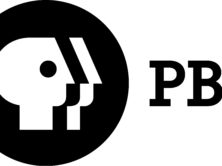(Credit: Times of London, screenshot)
News Corp.-owned Times of London won a Supreme Court appeal in the libel case against its 2006 article on Gary Flood and found the article to be in the public interest, Journalism.co.uk reported. According to the Press Association, it was a unanimous decision.
As we have written, the original Times article suggested Flood, a police officer, took bribes in exchange “for selling intelligence.” Later, a police investigation determined that the claims didn’t hold up. The Press Association explained that the bribes were allegedly from “a British security company with wealthy Russian clients.”
A 2009 High Court ruled that the newspaper’s article wasn’t protected by Reynolds Privilege in full and the appeals court ruled in 2010 that the newspaper’s article wasn’t at all protected by the privilege, according to Journalism.co.uk.
The Supreme Court ruled that “The article, although undoubtedly damaging to DS Flood’s immediate reputation, was balanced in content and tone.” The Supreme Court noted that the Times asked Flood to comment for the article.
The ruling also found that the article was “protected by the Reynolds privilege.” As the Guardian explained:
“The Reynolds privilege protects publication of defamatory material if it is in the public interest that the information should be published and where the publisher has acted responsibly in testing the veracity of the information. The defence relates to a case involving the former Irish prime minister Albert Reynolds.”
In a separate article, the Guardian explained, the Reynolds privilege requires the court to weigh “the seriousness of the allegations, the steps taken to verify them, whether the subject matter is of public concern, the source of the information, urgency and whether comment was sought,” among other elements.
According to Journalism.co.uk, Times editor James Harding called the ruling “a landmark decision in favour of responsible journalism in the public interest.”
We wrote in November about the Times of London’s appeal.
See the ruling in full here.
UPDATED: 4/2/2012 4:17 PM EST: Added information from the Press Association





